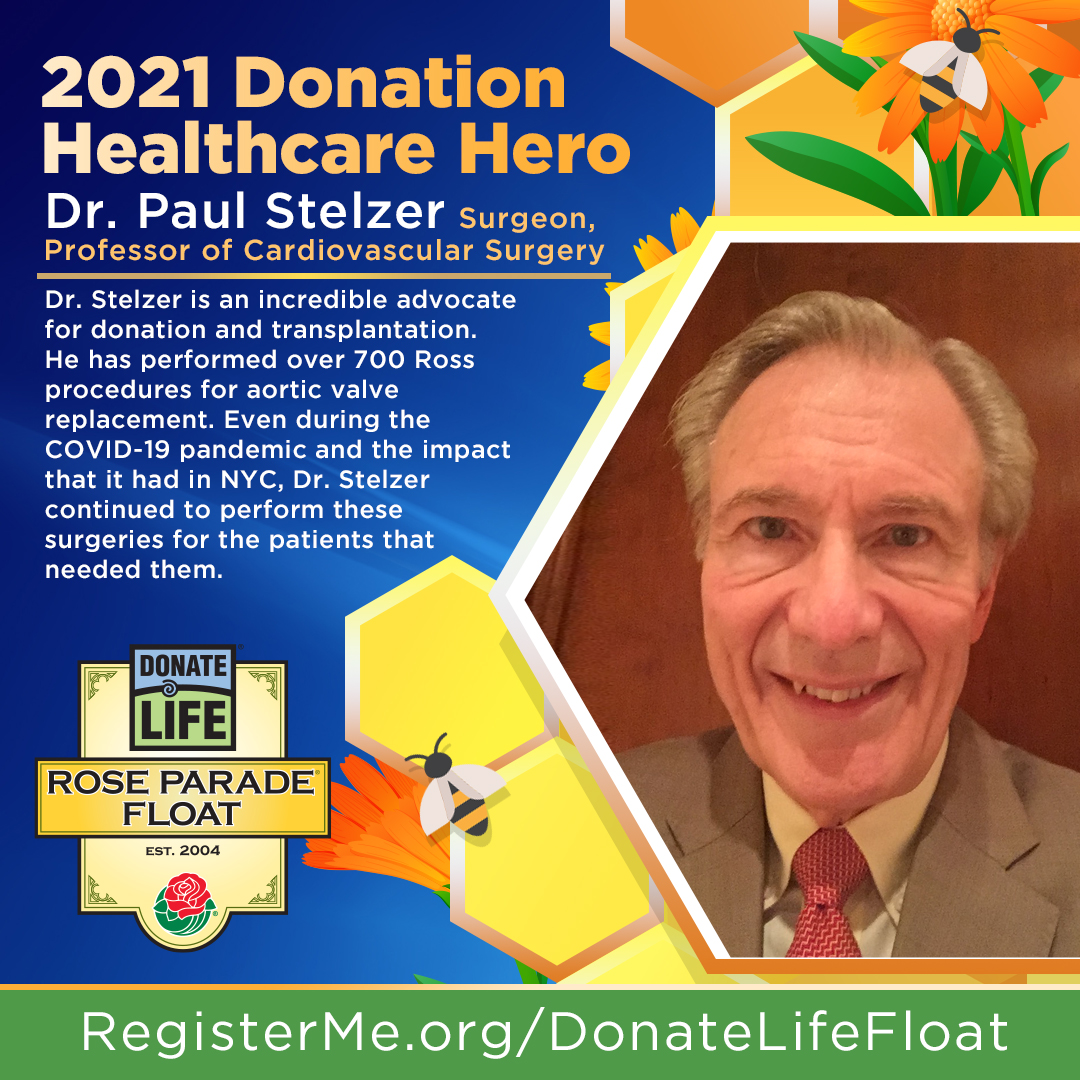2021 Donation Healthcare Hero - Dr. Paul Stelzer

Occupation: Surgeon, Professor of Cardiovascular Surgery
Age and Location: Age 73 – New York, NY
Sponsor: Honored by CryoLife
HONORED BECAUSE
Dr. Stelzer is an incredible advocate for donation and transplantation. He has performed over 700 Ross procedures for aortic valve replacement. In these cases, they move the patient's own pulmonary valve to the aortic position and then replace the pulmonary with an allograft. Even during the COVID-19 pandemic and the impact that it had in NYC, Dr. Stelzer continued to perform these surgeries for the patients that needed them. CryoLife's last two honorees, Donna Pierce and Jeannie Sullivan, were both Ross procedure patients. Jeannie was also a patient of Dr. Stelzers.
Dr. Stelzer has also assisted Cryolife in educational opportunities and always shares the story of his sister and her ability to have her husband be a donor because of his assistance.
BIOGRAPHY
Dr. Stelzer was born in Minnesota, raised in Nebraska and went to college in Texas. He earned his medical degree at Columbia University College of Physicians and Surgeons in 1972 and completed residencies in general surgery at Roosevelt Hospital and in thoracic surgery at New York Hospital -Weill Cornell Medical Center. He served as a general surgeon in the US Air Force for two years between those two residencies.
He remained at Cornell on faculty for four years before going to the University of Oklahoma Health Sciences Center in 1985 where he began his work with donor human valves doing aortic homograft and then pulmonary autograft surgery. He returned to New York in 1989 and spent the next seven years at Lenox Hill Hospital, then eleven at Beth Israel Hospital before going to Mount Sinai Hospital in 2007 where he is Professor of Cardiovascular Surgery. His series of over 730 Ross operations is one of the largest in the world. The Ross patients are all indebted to the families who donated the pulmonary valves which are an essential part of that operation.
While still in Oklahoma, Dr. Stelzer had the opportunity to help his young sister when her husband was taken from her by a stroke. He was in a coma with no hope of recovery, but no one had told her that he could be an organ donor. After explaining to her that it sounded like this could be possible, she asked him to call the doctor caring for her husband. The attending physician confirmed that there was no possibility of recovery, but he had not discussed organ donation because she was “so young and so upset.” Dr. Stelzer conveyed his sister's desire to donate organs. She treasured the letter thanking her for giving new life to four other people. This experience convinced Dr. Stelzer that no grieving family should be denied the opportunity to bring comfort out of tragedy by donating a loved one's organs or tissues.